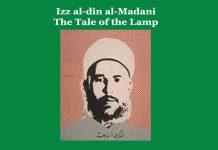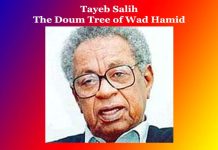Nikolay Gogol | The Cloak | An Analytical Study
Nikolay Gogol | The Cloak | An Analytical Study
Nikolay Gogol | The Cloak | An Analytical Study
‘The Cloak’ is a Russian short story written by Nikolay Gogol (1809-1852). It is a long humorous short story. The main theme of the story is poverty and the mockery of the superior officers to the subordinate officer.
The story is all about a poor Russian clerk who works in a government office. His name was Akaky Akakiyevich. He is gentle and dutiful whom everybody in his office mocks at and derives the joy of fun with him. He lived in St. Petersburg. When the winter was falling, he thought of his cloak to be repaired which was almost worn out. Hence one day he went to a tailor called Petrovich. The tailor spread the coat on his table and noticed that it was quite impossible to be repaired and suggested him to take a new one. But Akakiyevich insisted on repairing his old cloak. Then Petrovich said, “There is nothing to be done with it. It is a thoroughly bad job. You’d better when the cold winter weather comes on; make yourself some gaiter out of it. Eventually, he had a new cloak made by the tailor half in credit and wearing it he went to his office. For that, he became the target of fun for his colleagues. They insisted on giving them a party in honour of the cloak. He hesitated to reply. Then one of his well-off comrades working in the same office agreed to give a party at his home in favour of Akaky Akakiyevich. Accordingly, the party was arranged that very night. All the officials went in time but Akaky did a little late in attending the party. He, wearing his new coat went to his comrade’s feast and reaching the place, he kept the coat hanging on the wall of the outer room and attended the party. Seeing him, all the invitees rose up and surrounded Akaky and asked for his coat and rushed to the outer room to have a glance at the coat. Such the coat of Akaky became the object of fun that night also. After this, they took their meal. Already it was twelve o’clock at night. Akaky Akakiyevich took his return journey to his home leaving his comrades there. It was very cold at night. But on the way home, he felt that someone had snatched away his cloak off his shoulders. He went home and told to his landlady about what had happened. His landlady advised him to go to the police so as to investigate the case to find out the thief. Accordingly, he went but he had to suffer a lot in maintaining the formality. Superior officers called Prominent Officers treated him arrogantly and thus getting no justice he lost his hope of getting the lost cloak back. He fell ill and within some days he died. After his death, some people reported that they had seen the ghost of Akaky Akakiyevich in the night street of St. Petersburg.
Akaky Akakiyevich is the principal Character of the story. He is portrayed as a type as well as an individual. He is a type of clerk but an individual in his dealings. Petrovich is also characterized here in the story as a type of tailor but he is honest and sympathetic to his customers as he made a beautiful coat for Akaky Akakiyevich at a low price. The prominent Personage is a type of haughty government official.
Humour and pathos are the main tones of the story. The life of Akaky Akakiyevich is pathetic but the incidents which he faces are touched with humour.
In narrating the story the author has employed the Objective Method and narrates his story objectively keeping himself outside his story.
The story, in Structure, is a good one but not a better one because the author has gone afar in detailing his events and has given his story the shape of a mini-novel. The main event of the story revolves round the cloak of Akaky Akakiyevich but the author has made an over-elaboration of his official activities and towards the end of the story the author has taken shelter in the supernatural which lessens the realistic appeal of the story.
The Setting of the story is consistent with the events and situation. The author gives a good description of his main character along with the environment of his event.
The Dialogues employed in the story is very logical as he uses them sparingly but all the dialogues have taken his story ahead and unfolded the inner nature and motives of his characters.
The Philosophy of Life is also found in the story. The author has expressed his philosophy of life indirectly that the poor often become the object of sufferance in life in the hand of men of higher positions.
The Language of the story cannot be called simple as he often employs complex and long sentences and elaborates his events too much.
In maintaining the Qualities of a good short story as —unity of purpose, brevity, spontaneity and universality the author has failed lamentably and it is because of the aver elaboration of his events.
In Length, it is a long short story and can be called a novella.
In grade, the story fails to be a story of first grade because it bears too much elaboration, supernatural elements and the author’s failure in keeping up the quality of brevity. 0 0 0 The Cloak
Nikolay Gogol | The Cloak | An Analytical Study
Read More: Leo Tolstoy’s The Imp and the Peasant’s Bread-Analytical Study
The Cloak
N. B. This article entitled ‘Nikolay Gogol | The Cloak | An Analytical Study’ originally belongs to the book ‘World Short Story Criticism‘ by Menonim Menonimus. Nikolay Gogol | The Cloak | An Analytical Study
Books of Literary Criticism by M. Menonimus:
- World Short Story Criticism
- World Poetry Criticism
- World Drama Criticism
- World Novel Criticism
- World Essay Criticism
- Indian English Poetry Criticism
- Indian English Poets and Poetry Chief Features
- Emily Dickinson’s Poetry-A Thematic Study
- Walt Whitman’s Poetry-A Thematic Study
- Critical Essays on English Poetry
- Tawfiq al-Hakim’s Novel: Return of the Spirit-An Analytical Study
- Tawfiq al-Hakim’s Novel: ‘Yawmiyyat Naib Fil Arayaf’-An Analytical Study
- Analytical Studies of Some Arabic Short Stories
- A Brief History of Arabic Literature: Pre-Islamic Period …
Books on Linguistics by M. Menonimus:
- A Brief History of the English Language
- Essays on Linguistics
- My Imageries
- Felicitous Expression: Some Examples
- Learners’ English Dictionary
Related Searches:
- Short Stroy Criticism
- The Indian English Short Story
- Individual and Society …
- ‘Deliverance’ by Premchand Analysis
- Summary of Rabindranath Tagore’s ‘The Exercise Book
- Exercise Book
- The Cabuliwallah
- Atulananda Goswami Biogrpahy
- Lord Halifax’s Ghost Books
- The Romance of a Busy Broker
- The Last Lesson by Alphonse Daudet
- Story Summary’The Last Lesson’
- The Cloak
- The Overcoat by N Gogol …











